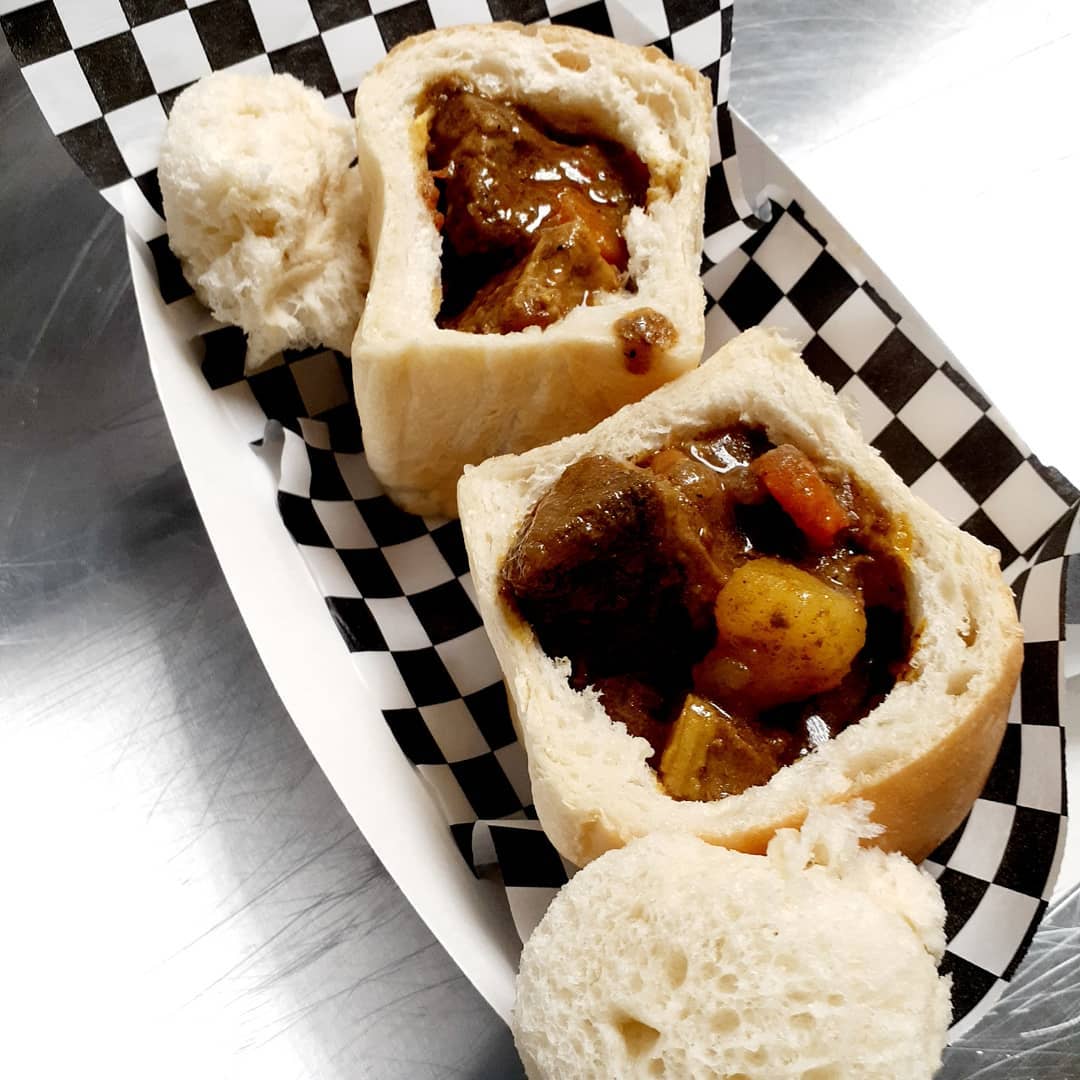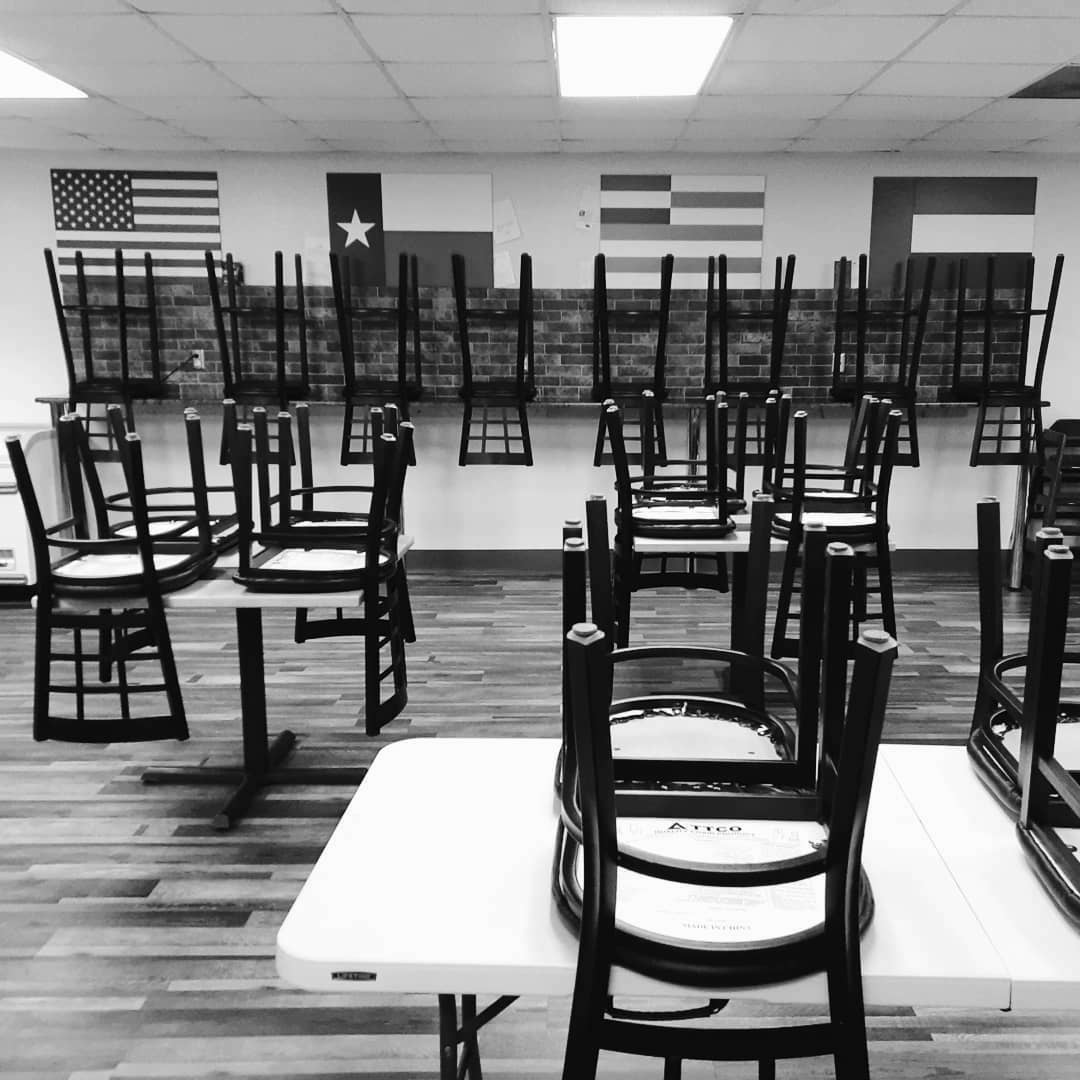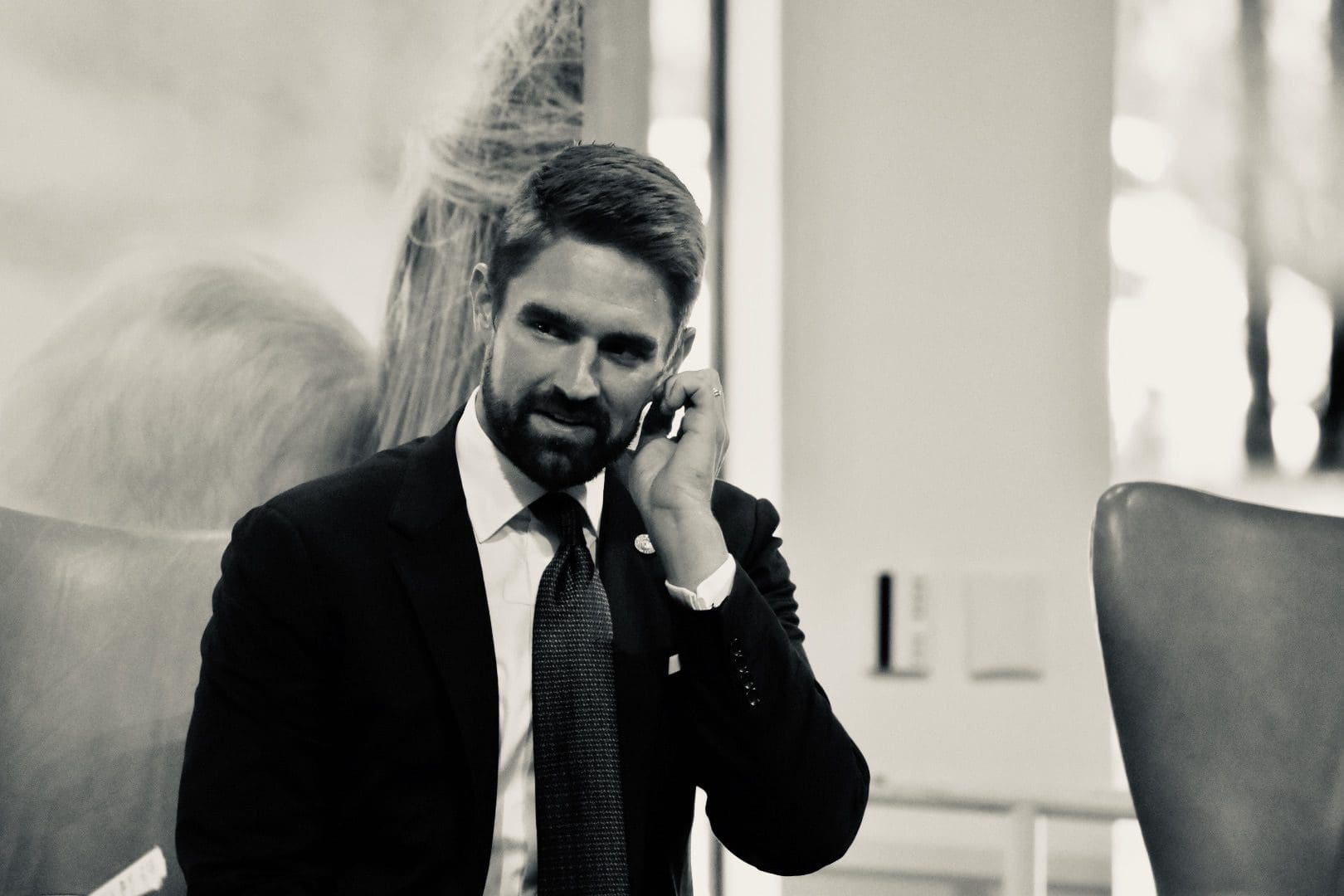During last year’s government-mandated shutdowns and restrictions, a South African immigrant running a business in North Texas commented that the state had become too much like the communist country he fled. Despite the mandates, his business managed to thrive.
Anton can Vuuren owns Anton’s Meat & Eat, a restaurant in Roanoke that serves South African cuisine.
In 2015, he came here from his homeland of South Africa, and he later met his wife here in the Lone Star State.
“She really liked my food, and … now we have a restaurant,” he told Texas Scorecard. “Cooking is not where I started, you know; it was my hobby.”
He describes South African food as “a little bit more European,” but with flavor.
Among the dishes he serves are cottage pies—which he says are like shepherd’s pie—chicken pot pie, lamb curry, and a South African street food known as “bunny chow,” a hollowed-out bread filled with meat and vegetables.

After opening, it seemed Anton had found success in the restaurant business.
“We started picking up and things started looking up. And then, of course, COVID hit us,” he said.
I remember the day that mandate came in, and it was like a ghost town. There wasn’t even a car on the road.
The Shutdown
For many Texans, experiencing Gov. Greg Abbott’s shutdowns was an unprecedented event, but it reminded Anton of his homeland.
“Nobody was really spending money. Everybody was kind of stuck in their houses. And I said, ‘This is exactly how it looks and feels in South Africa,’” he recalled. “The only difference is … they will still try and rob you.”
South Africa is probably the most beautiful country that you’ve ever seen with the worst crime problem.
“Everybody’s leaving or trying to leave South Africa, not only a specific segment of the population,” he explained. “There’s a reason for this: Forty percent-plus unemployment, for example.”
“That’s why the crime so high, and it’s because of bad government policies,” Anton summarized. “South Africa’s pretty much a communist country.”
Does he think Texas got too close to the way South Africa’s government operates during COVID?
“Yes, absolutely,” he replied. “Too much control, too much enforcement.”
When the government mandates and restrictions hit, Anton saw some businesses suffer.
“There was a burger place in downtown Roanoke, and they died,” he recalled. “There was another small restaurant that didn’t make it that’s now being changed to other things … rather, people are taking over the properties on that building lease.”
But he stresses businesses in other areas were hit harder than his.
“We are in probably a little bit of a higher income bracket side of [Dallas-Fort Worth], so it didn’t affect us as badly,” Anton said. “I just think, you know, a lot of people here probably [were] working from home already.”
How did Anton adjust?
Freedom
“I believe in personal freedoms, liberty, and choice,” he said. “If you want to do something, then you do it. I just don’t like someone telling me what to do.”
That belief flowed into how he operates his business, even during the shutdowns.
“We didn’t enforce any requirements,” he said. “If you want to wear [a mask], wear it. If you don’t, you don’t.”
He also refused government handouts.
“We didn’t take any loans, and we didn’t take any of the PPE. We didn’t take anything,” Anton said. His action proved wise as he heard of the conditions imposed after receiving a government loan.
“The story was [the loan] would be forgiven, but you have to book it as income now,” Anton recalled. “So, [there] was like a 25 percent tax on it or something.”
“If you don’t get it forgiven, you’ve got a low-interest loan you’ve got to repay,” Anton continued.
Anton avoided this entanglement and worked harder to keep his livelihood afloat.
“Everybody kind of shut down, and we didn’t,” he said. “We actually extended our hours. So, we worked longer hours, and we probably doubled … our product range.”
Anton also added a quasi “retail section,” offering items one could find at a butcher’s shop in South Africa.
“We did a whole bunch of kind of unconventional things,” Anton explained. “Because we are a bakery, and a deli, and a restaurant, we’ve added all of these things that are kind of [a] dairy and meat section.”
Nobody wanted to dine in, so they kind of started buying the stuff to take home.
“We just completely changed how and what we do,” he continued. “We took a bit of a dip and actually showed a very good growth through COVID.”
What propelled him to go in this direction?
“Where I’m from, there are no back-ups,” he said. “It’s not like you can look to the government and say, ‘You’ve got to help.’”
Call to Action
Anton was asked what advice he had for other business owners.
“I think that the only thing I can say is to try and stay away from anything the government offers—as best as you can—because it’s never for free,” Anton advised. “There’s always some condition attached; just keep your head down and work real hard.”
He also offered advice to citizens.
“You have no idea what freedom is worth—and you don’t have an idea what the value of your freedom is—until you lose it,” he said. “Basically, the government doesn’t know what’s best for people, people know what’s best for people.”
Pay close attention to which officials say what … and vote accordingly.
This month, Gov. Greg Abbott’s latest executive order to open Texas more and end his statewide mask mandate took effect.
“I’m glad things are reopening. It’s about time … should have been done a while ago,” Anton said. “I don’t like being mandated to do anything. That’s why I left South Africa.”
If your business or the business of someone you know was hurt from government shutdowns and restrictions in 2020, please contact us at rmontoya@texasscorecard.com.
This article has been updated since publication.





